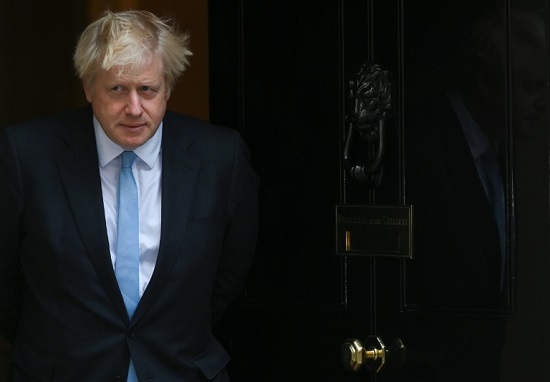This post has already been read 2001 times!
Boris Johnson is poised to issue an ultimatum to the European Union on Wednesday: negotiate Brexit on his terms within the next nine days, or face a no-deal divorce. A key EU player has already rejected the prime minister’s plan.
On Wednesday, Johnson will address his Conservative Party’s annual conference in Manchester, England, and his office said he would present a “fair and reasonable compromise” offer to the EU. He will say it is now vital to deliver on the decision of the British people to leave the EU in a referendum in 2016.
“After three and a half years people are beginning to feel that they are being taken for fools,” Johnson will say. “They are beginning to suspect that there are forces in this country that simply don’t want Brexit delivered at all.”
As details of Johnson’s proposals emerged, Ireland quickly shot them down. Irish Foreign Minister Simon Coveney said it didn’t look like the basis for a deal, and described a report of the plan in the Telegraph newspaper as “concerning.”
If Brexit talks collapse, the UK will be on course to leave the bloc without a deal. Johnson is vowing to defy efforts by the British Parliament to prevent a no-deal exit. His office said on Tuesday that he would never negotiate the extension to EU membership that new legislation demands if he can’t secure an agreement.
If he can’t get a deal and he doesn’t seek a delay, he will probably find himself fighting members of parliament in court – and could even be ousted.
“The prime minister will in no circumstances negotiate a delay,” his office said.
New offer
Johnson will propose scrapping the so-called Irish border backstop – the most contentious part of the deal that his predecessor Theresa May signed – and instead placing Northern Ireland in a temporary regime with a time limit. Customs checks would be required between Northern Ireland and the Republic of Ireland – something Ireland and the EU oppose.
According to people familiar with the matter, Johnson’s plan contains three key elements:
- The whole UK including Northern Ireland will be in a separate British customs regime and not in the EU’s customs union.
- Special temporary arrangements for customs and regulatory enforcement on goods crossing the Northern Irish border. This system would apply for about four years.
- The policy will be subject to the “consent” of the communities in the region – through the restoration of the power-sharing assembly in Northern Ireland and other institutions, which are currently suspended.
The prime minister’s office said his plan will be his “final” proposal and – if rejected – the UK would walk away and begin preparations for a no-deal Brexit. In an interview with The Sun newspaper on Tuesday, the premier set a new deadline for reaching a deal by 11 October.
This week had seen some hints that there might be a way to get a deal. Tory MPs who refused to vote for the agreement that May negotiated suggested they could be persuaded to back a deal to avoid losing Brexit altogether.
The Democratic Unionist Party – a key ally from Northern Ireland – has been publicly supportive of Johnson and his negotiating efforts. Johnson said at an event in Manchester alongside DUP figures late Tuesday that he hoped to clinch a deal in the next few days.
Meanwhile it emerged that European governments have privately discussed allowing a time limit on the so-called Irish backstop – the most controversial part of the deal, according to two people familiar with the situation.
But the time limit would only be on offer if Johnson puts forward a workable proposal, officials said. Johnson isn’t ruling out a time limit on the backstop.
With less than a month to go until Britain is due to leave the EU, everything still hangs on the question of the Irish border. Once the UK has left the EU’s customs union, there will need to be border controls, but both sides say they’re opposed to physical infrastructure such as checkpoints on the frontier.
Johnson has said he wants to abolish the backstop – designed as an insurance policy to avoid a hard border on the island of Ireland – because it risks trapping the UK in EU rules indefinitely.
In interviews this week he said customs checks of some kind would be needed on the island of Ireland as a consequence of the EU’s demands to protect its single market. The tone of his comments alarmed some in Brussels.
“There will have to be a system, for customs checks away from the border,” the prime minister said in an interview with the BBC. “That is where the argument is going to be. And that’s where the negotiation will be tough.”



